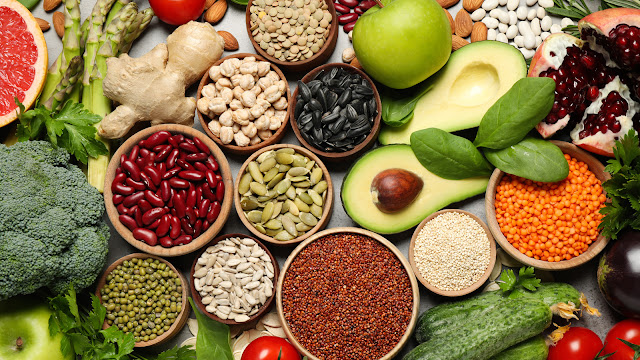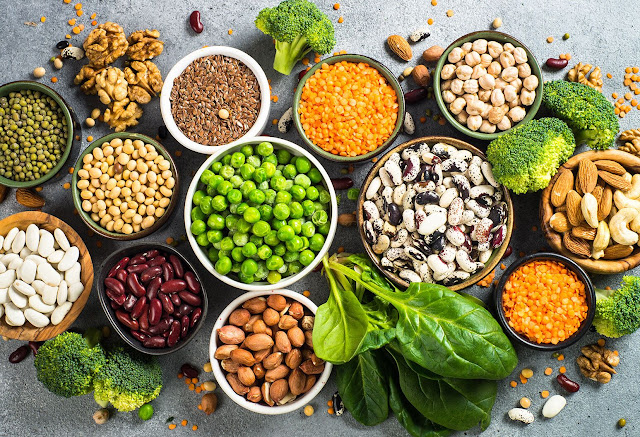Vegan Gut Health
Nurturing Your Microbiome: The Role of Veganism in Gut Health
In recent years, there has been a growing appreciation for the importance of gut health in maintaining overall well-being. The gut microbiome, a complex ecosystem of trillions of bacteria, fungi, and other microorganisms residing in the gastrointestinal tract, plays a crucial role in digestion, nutrient absorption, immune function, and even mental health. As interest in plant-based diets continues to surge, researchers are uncovering the profound impact of veganism on gut health. In this article, we delve into the intricate relationship between vegan gut health, exploring the science behind it, debunking myths, and offering practical tips for nurturing a healthy gut on a plant-based diet.
Understanding the Gut Microbiome
The gut microbiome is a dynamic community of microorganisms that inhabit the gastrointestinal tract, predominantly the large intestine. These microbes play a multitude of roles in the body, from aiding in digestion and synthesizing essential nutrients to modulating immune responses and protecting against pathogens. The composition and diversity of the gut microbiome can vary widely among individuals and are influenced by factors such as diet, lifestyle, genetics, and environmental exposures.
Veganism and Gut Health: What the Research Says
Numerous studies have investigated the effects of vegan diets on the gut microbiome, with compelling findings that highlight the beneficial impact of plant-based eating on gut health. Here are some key insights from the research:
Increased Microbial Diversity: Vegan diets, rich in fiber, vitamins, minerals, and phytonutrients from plant foods, have been associated with greater microbial diversity in the gut. A diverse microbiome is generally considered a marker of gut health, as it reflects the presence of a wide range of beneficial microorganisms capable of performing various functions.
Promotion of Beneficial Bacteria: Plant-based diets provide prebiotic fibers that serve as fuel for beneficial bacteria in the gut, such as Bifidobacteria and Lactobacilli. These microbes produce short-chain fatty acids (SCFAs), such as butyrate, acetate, and propionate, which have anti-inflammatory and immune-modulating effects and support intestinal barrier function.
Reduced Pathogenic Bacteria: Conversely, vegan diets may suppress the growth of pathogenic bacteria associated with inflammation and disease. By minimizing intake of animal-derived foods and their associated pro-inflammatory compounds, vegans create an environment in the gut that is less hospitable to harmful microbes.
Improved Gut Transit Time: High-fiber vegan diets promote regularity and bowel movements by adding bulk to stool and stimulating peristalsis—the rhythmic contractions of the digestive tract. This helps prevent constipation and promotes the elimination of waste products, contributing to a healthy gut environment.
Debunking Myths About Veganism and Gut Health
Despite the mounting evidence supporting the gut health benefits of vegan diets, several myths and misconceptions persist. Let's address some of the most common myths:
Myth: Vegans Lack Protein: Contrary to popular belief, plant-based diets can provide all the essential amino acids needed for protein synthesis and maintenance of muscle mass. Legumes, tofu, tempeh, seitan, quinoa, and nuts are excellent sources of protein that can easily meet the body's requirements.
Myth: Plant Foods Are Hard to Digest: While some people may experience gastrointestinal discomfort when transitioning to a vegan diet, this is often temporary and can be attributed to changes in fiber intake. As the gut microbiome adapts to increased fiber consumption, digestive symptoms typically subside, and individuals experience improved bowel regularity and comfort.
Myth: Vegan Diets Lack Nutrients: Vegan diets can provide all the essential nutrients necessary for optimal health when properly planned. By incorporating a variety of fruits, vegetables, whole grains, legumes, nuts, and seeds into their meals, vegans can obtain adequate amounts of protein, fiber, vitamins, minerals, and antioxidants.
Myth: Veganism Causes Digestive Issues: While some individuals may experience digestive issues on a vegan diet, such as bloating or gas, these symptoms are often transient and can be addressed through dietary adjustments and lifestyle modifications. Increasing fiber intake gradually, staying hydrated, and paying attention to portion sizes can help minimize digestive discomfort.
Practical Tips for Promoting Gut Health on a Vegan Diet
Whether you're a seasoned vegan or considering adopting a plant-based lifestyle, here are some practical tips for nurturing your gut health:
Prioritize Fiber-Rich Foods: Aim to include a variety of fiber-rich foods in your diet, such as fruits, vegetables, whole grains, legumes, nuts, and seeds. These foods provide prebiotic fibers that nourish beneficial bacteria in the gut and support digestive health.
Eat Fermented Foods: Incorporate fermented foods such as sauerkraut, kimchi, tempeh, miso, and dairy-free yogurt into your meals. Fermented foods contain probiotic bacteria that can help replenish and maintain a healthy balance of gut flora.
Stay Hydrated: Drink plenty of water throughout the day to support proper digestion and prevent constipation. Adequate hydration is essential for maintaining optimal bowel function and promoting the elimination of waste products.
Practice Mindful Eating: Take time to chew your food thoroughly and savor each bite. Mindful eating can enhance digestion, reduce bloating, and promote a greater sense of satisfaction and satiety.
Limit Processed Foods: Minimize consumption of processed and ultra-processed foods that are high in added sugars, unhealthy fats, and artificial additives. These foods can disrupt gut microbiota balance and contribute to inflammation and digestive issues.
Listen to Your Body: Pay attention to how different foods affect your digestion and overall well-being. Experiment with various foods and dietary patterns to find what works best for your individual needs and preferences.
Seek Professional Guidance: If you're experiencing persistent digestive issues or have specific dietary concerns, consult with a registered dietitian or healthcare provider knowledgeable about plant-based nutrition. They can offer personalized recommendations and support to help you optimize your gut health.
Conclusion
In conclusion, vegan gut health offers a wealth of benefits for gut health, from promoting microbial diversity and supporting beneficial bacteria to reducing inflammation and enhancing digestive function. By embracing a plant-based diet rich in fiber, nutrients, and phytonutrients, individuals can nourish their gut microbiome and cultivate a thriving ecosystem that contributes to overall health and well-being.
As with any dietary change, it's essential to approach veganism with balance, mindfulness, and informed decision-making. By listening to your body, seeking professional guidance when needed, and making conscious choices that prioritize gut health, you can harness the transformative power of veganism to cultivate a happier, healthier digestive system for years to come.
Website: https://cruelty.farm/
https://www.behance.net/gallery/196178515/Cognitive-Function-Diet




Comments
Post a Comment